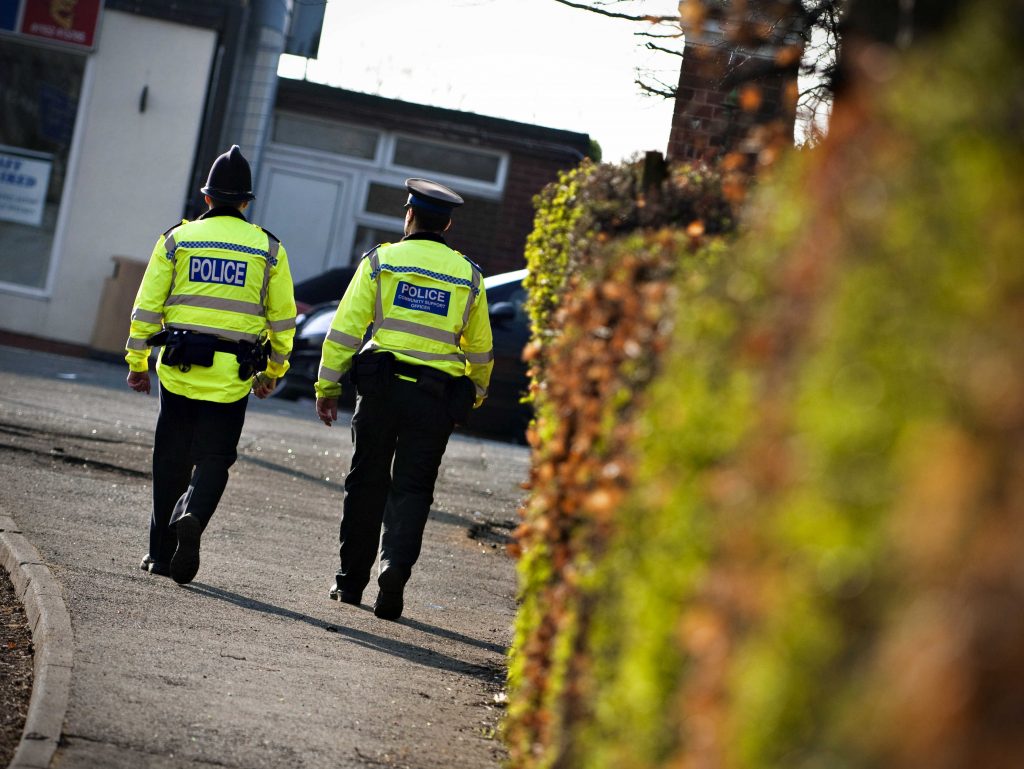As part of the drive to prioritise budget towards frontline policing, changes are going to be made to the opening hours of some of Staffordshire Police’s public enquiry desks.
A 12-month estates review carried out jointly by Staffordshire’s PCC and the Police Service has identified where buildings are underused, co-location with other services is appropriate and where new investment in buildings is needed.
The ongoing rollout in Staffordshire of new mobile technology that will see officers out of police stations and in communities for an extra 250,000 hours each year – the equivalent of an extra 100 officers on duty time-wise – was also taken into account.
The review found that the number of people using traditional police stations has reduced significantly in recent years with some enquiry desks seeing fewer than two visitors a day.
Opening hours at 12 of the 21 public enquiry desks across the county won’t change. Six will see hours reduce and three, the enquiry desks at Chasetown, Tunstall and Stoke police stations, will close by the end of October this year.
Staffordshire’s Police and Crime Commissioner, Matthew Ellis, says that value for tax payers’ money and allocating as much of the available budget to support frontline visible policing is the way forward.
“People understandably like the idea of most police buildings being open to the public most of the time. But policing budgets are reducing as are the number of people physically visiting enquiry desks, particularly in some specific locations.
“Most people want to see more frontline officer time out and about in communities. The strategy is exactly that as well as big investment in modern technology to free up officer time while increasing the capacity and capability of policing in Staffordshire.
“The answer isn’t throwing more and more money at services but it is about choices and spending the money available on the things that are most important to people. There will still be ample face to face counter services including the ability to formally present documents and other legal requirements, just not quite as many as there are now.
“We will, of course, continue to work with Staffordshire Police to improve the effectiveness of the 101 service as well as developing online contact, new apps as well as social media to engage with local officers and wider policing services.
“Public service hubs which integrate police and other public services in one building – such as those that have been established in Newcastle, Kidsgrove, Lichfield, Stone and Biddulph – are proving successful with less of a drop off in visitor numbers and a more customer-focused way of delivering the service. People only have to have one conversation to get the help they need and the hubs are more efficient because they share the fixed costs.”
Mr Ellis added: “At a time when some police forces are abandoning neighbourhood policing, the commitment to local, neighbourhood policing in Staffordshire and Stoke-on-Trent is stronger than ever.
“The enquiry desks at Chasetown, Tunstall and Stoke will close and be replaced by new police posts which will open at community buildings in those towns where people can meet local officers at drop-ins or surgeries. My intention is to have more of these posts across Staffordshire, many in rural areas that have never had access to police in this way.
“In addition there will be a significant number of additional Contact Points so people can speak directly over the phone to the police control room 24 hours a day seven days a week. That will mean that in total there will be up to 200 police enquiry desks, police posts and Contact Points in communities across Staffordshire and Stoke-on-Trent.
“The next few years will see a bigger proportion of the resources available spent on frontline policing, investment in 21st century technology to expand the way people can engage with local officers and a better, more comprehensive policing service for less cost to the public.”
Assistant Chief Constable Bernard O’Reilly, from Staffordshire Police, said: “Our aim is to be available to the public where and when they want us to be. Increasingly, this means via the phone, email, in the street or on social media, not behind an enquiry office desk.
“We’ve based our decisions on facts, having spent nearly a year scrutinising visitor numbers across all of the enquiry offices in the county. It’s very clear that the limited demand to have enquiry offices in Chasetown, Tunstall and Stoke, or extended opening hours at half-a-dozen other offices, isn’t sustainable when compared to the costs of keeping them open.
“What this isn’t is a reduction in police officer numbers, or a move away from neighbourhood policing. As we equip Staffordshire police officers with state-of-the art mobile technology, walking the streets in our neighbourhoods, they will be more accessible to the public than they have ever been.”
Staff affected by the changes are being consulted but there will be no compulsory redundancies.
The revised public enquiry desk opening hours, to take effect from the end of October, will be:
Biddulph: 9am to 5pm, Monday to Friday
Leek: 9am to 5pm, Monday to Friday
Burslem: 9am to 5pm, Monday to Friday
Hanley: 9am to 6pm, Monday to Friday, 9am to 2pm, Saturday
Cheadle: 9am to 5pm
Uttoxeter: 9am to 5pm
Burton: 9am to 6pm, Monday to Friday, 9am to 2pm, Saturday
Tamworth: 9am to 5pm, Monday to Friday
Lichfield: 9am to 5pm, Monday to Friday
Rugeley: 9am to 5pm, Monday to Friday
Cannock: 9am to 5pm, Monday to Friday
Wombourne: 9am to 5pm, Monday to Friday
Watling Street: 9am to 5pm, Monday to Friday
Stafford: 9am to 6pm, Monday to Friday, 9am to 2pm, Saturday
Stone: 9am to 5pm, Monday to Friday
Longton: 9am to 6pm, Monday to Friday, 9am to 2pm, Saturday
Newcastle: 9am to 5pm, Monday to Friday
Kidsgrove: 9am to 5pm, Monday to Friday
*Reduced hours in bold.



